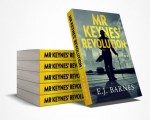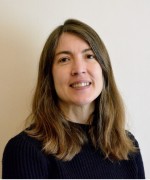Researching and Writing a Historical Novel
Emma Barnes
- Region:
- Anywhere
- Notice Period:
- Regular (more than one month's notice)
- Type:
- Professional
- Fee:
- Paid: £100
- Category:
- Humanities
- Updated:
- 24th March 2022
- Tagged:
- Creative Writing | Novels | British History | Family History
How do you research and write a novel set in a different time? This talk looks at the challenges of understanding a different era, and of thinking yourself into the heads of characters with very different cultural backgrounds and values. What are the pitfalls in writing about the famous, and how do you discover the forgotten figures of history – including those who don’t appear in the history books? Should you use real people, your own ancestors or entirely invented characters, and what are the implications of those choices? Is exact historical accuracy crucial – as novelist Hilary Mantel claims – or can fiction writers be more inventive? What are the different genres of historical novels, and what can we learn from writers as diverse as Patrick O’Brian, Mary Renault, Umberto Eco or James Clavell? How do you create a believable setting, whether in high politics, the battlefield, or the back streets of an impoverished town?
My talk is based around my experience in writing Mr Keynes’ Revolution and its sequel: historical novels set in the 1920s and 1930s, which cover high politics and finance, the Bohemian world of Bloomsbury and the avant-garde Ballets Russes. I also draw on my experiences writing a children’s novel based upon my own family’s history in the post war period, as well as my love of historical novels.
Views: 718 | Enquiries: 0About Emma Barnes
Emma Barnes (E.J. Barnes) is a professional writer and the author of a novel about Keynes’ life in the 1920s. She was recently a panellist at the International Virginia Woolf Conference, talking about her novel about Keynes, and has also been a speaker at literary festivals (including Edinburgh International Book Festival), libraries, schools and book groups. She has written for radio, theatre and screen as well as novels and children's fiction, and been translated into several languages; was commended in the 2020 Manchester Fiction Prize and won an Arts Council Writer’s Award. Her novel , Mr Keynes Revolution, has been praised by experts in the field (“history that is vivid on the page” – Judith Mackrell, biographer of Lydia Lopokova.)
More information can be found at her web-site: www.EJBarnesAuthor.com
Other Talks on SpeakerNet by Emma Barnes
Send a message to the speaker
If you are interested in this talk and wish to contact the speaker, please complete the following form:

